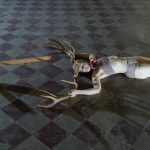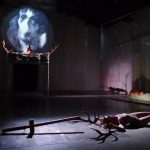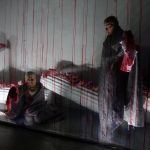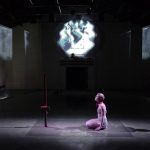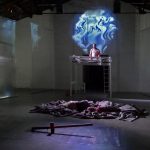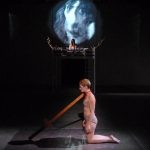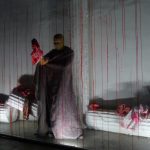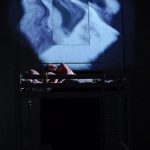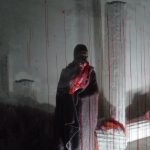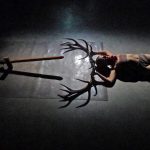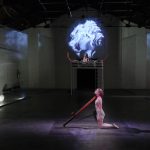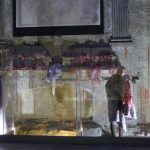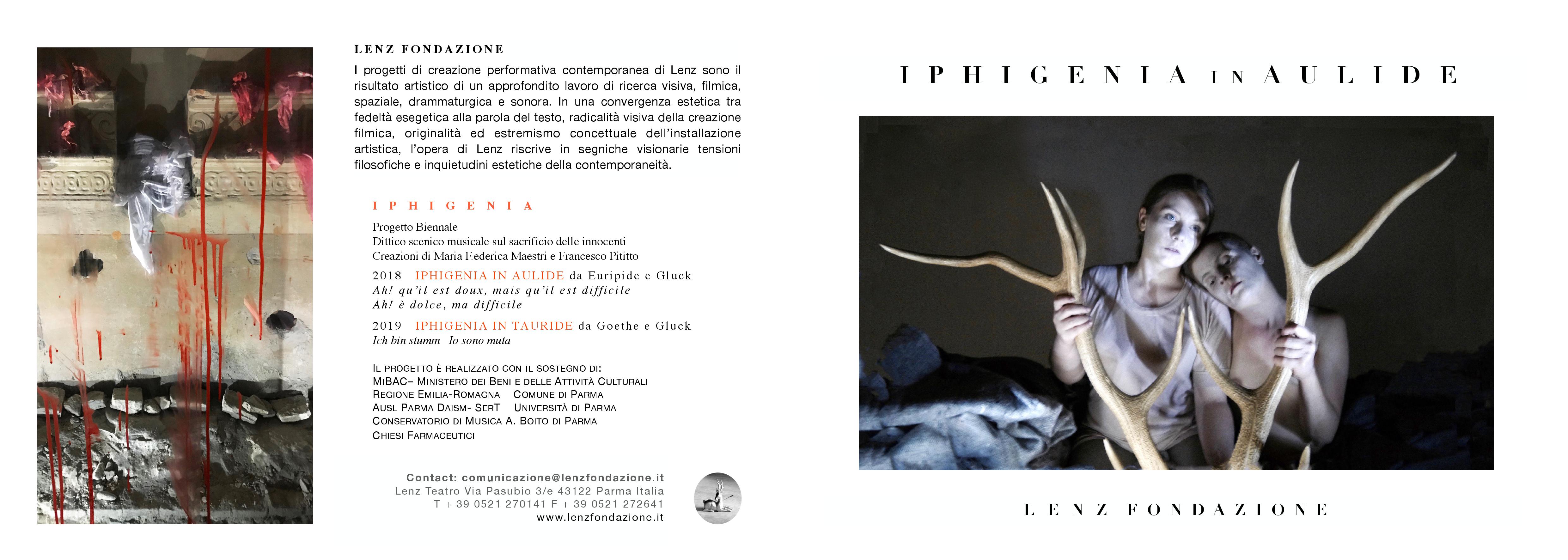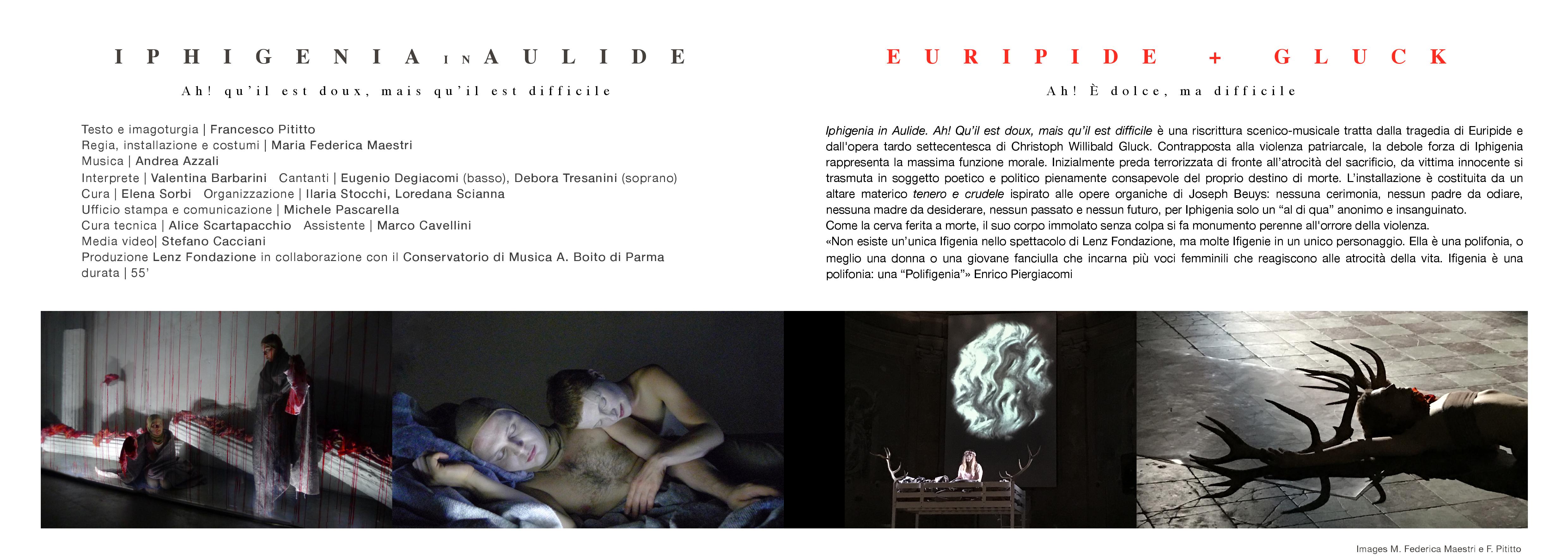
IPHIGENIA IN AULIDE (Iphigenia in Aulis)
IPHIGENIA
Two-year Project 2018-2019
Theater music diptych on the sacrifice of innocent females
2018 IPHIGENIA IN AULIS
Ah! quʼil est doux, mais quʼil est difficile (Ah! Sweet, yet how difficult it is) from Euripides and Gluck
2019 IPHIGENIA IN TAURIS
Ich bin stumm (I am mute) from Goethe and Gluck
IPHIGENIA IN AULIS
Ah! quʼil est doux, mais quʼil est difficile is a contemporary opera that reveals the mechanisms of power, by showing the kind of violence male figures can perpetrate in order to exercise their dominance on the female body. Countering this patriarchal violence young Iphigenia’s feeble strength holds the highest moral function: her fragility makes her a terrified prey facing the horror of the sacrifice and at the same time a heroine conscious of her own inevitable destiny of death, though with Gluck’s and de Roulet’s radically different ending, so far from the Myth.
The décor of the scene will be a materic altar, “tender and cruel”, inspired by the organic works of Joseph Beuys. No ceremonies, no father to hate, no mother to desire, no past and no future, only an anonymous and bloody ‘this side’.
The work is interpreted by actress Valentina Barbarini, acclaimed by critics for her powerful theatrical performances, by Debora Tresanin, a young soprano student at the Arrigo Boito Conservatory of Parma and by bass Eugenio Maria Degiacomi.
Ah! quʼil est doux, mais quʼil est difficile is a contemporary opera that reveals the mechanisms of power, by showing the kind of violence male figures can perpetrate in order to exercise their dominance on the female body. Countering this patriarchal violence young Iphigenia’s feeble strength holds the highest moral function: her fragility makes her a terrified prey facing the horror of the sacrifice and at the same time a heroine conscious of her own inevitable destiny of death, though with Gluck’s and de Roulet’s radically different ending, so far from the Myth.
The décor of the scene will be a materic altar, “tender and cruel”, inspired by the organic works of Joseph Beuys. No ceremonies, no father to hate, no mother to desire, no past and no future, only an anonymous and bloody ‘this side’.
The work is interpreted by actress Valentina Barbarini, acclaimed by critics for her powerful theatrical performances, by Debora Tresanin, a young soprano student at the Arrigo Boito Conservatory of Parma and by bass Eugenio Maria Degiacomi.
IPHIGENIA IN AULIS
Ah! How sweet, yet how difficult it is (Ah! quʼil est doux, mais quʼil est difficile)
From Euripides and Christoph Willibald Gluck
Text and imagoturgy | Francesco Pititto
Installation and direction | Maria Federica Maestri
Interpreted by Valentina Barbarini, Debora Tresanini (soprano), Eugenio Maria Degiacomi (bass)
Music | Andrea Azzali
in collaboration with A. Boito Music Conservatory
This is Lenz in a state of pure grace, for the production effort that is able to carry out and for the level of quality of the works presented […] Valentina Barbarini alternates her always vigilant presence with the performance of the two singers, balancing the need to give a voice to the character’s words and a physical language that varies for movements, postures, and gestures between animal-like, haughty, sensual, and iconic. The relationship between Iphigenia and Agamemnon develops along the central axis of the nave, at the end of which, on the apse, in addition to seeing Francesco Pititto’s projections, we see a white bunk bed covered in blankets standing out: altar, tent, throne, kings’ bed from where he imposes his will.
Franco Acquaviva, Sipario, 10 July 2018
The space wonderfully articulated as far as situations/actions: to the sides those plates to clean up, at the center the cross/sword with which Iphigenia will kill herself, around her neck that flower made of cloth already soaked in blood (all repeats in eternity, not only at the theater?), behind an raised everyday bed, high, down there, deformed images that tend to rotate and return.
Valeria Ottolenghi, Gazzetta di Parma, 10 July 2018
There is no single Iphigenia in Lenz Foundation’s show, rather many Iphigenias in a single character. She is a polyphony, better yet a woman or a young girl who embodies multiple feminine voices that react to the atrocities of life. Iphigenia is a polyphony, a Polyphigenia”.
Enrico Piergiacomi, University of Trento, July 29, 2018







